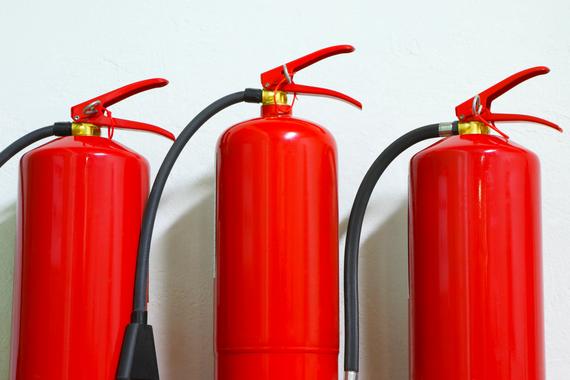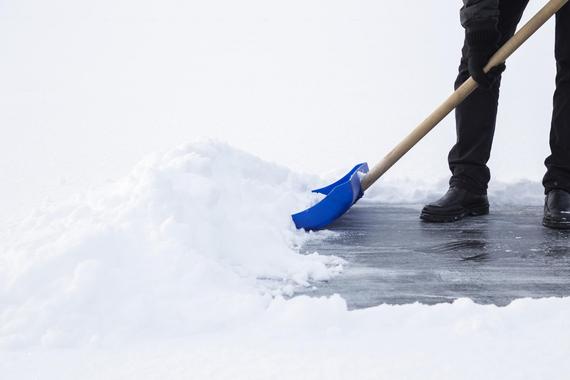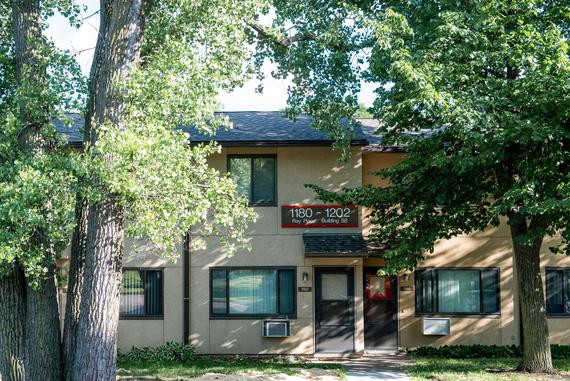
Winter Newsletter 2023-24
Living in Minnesnowta (ha-ha!) means we all must contribute personal and communal efforts for efficient snow removal and, thus, an easier winter for all in return. Co-op responsibilities include shoveling, parking lot reminders, snow emergencies, and extended travel checklist.
Winter Responsibilities + Resources:
- Household Shoveling*
- Snow Emergencies* + Seasonal Paid Parking Lot
- Parking Reminders
- UMN Landcare Requests + Snow Removal Noise
- Salt + Sand Barrels
- Extended Travel/Absence (5+ days) Checklist*
- Apartment Heating + Humidity*
- Mailboxes Freezing Shut
- Fall Preparation Tasks*
- Fire Extinguisher Exchange* on Oct. 11-12
- Annual Maintenance Inspections
*Community Requirement
Shoveling
All households must shovel their respective sidewalks of all snow/ice within 48 hours, otherwise will incur a fee per sidewalk not properly cleared. Shoveling the parking lot is not required but encouraged.
Household Shoveling Requirements**
Per CTC Resident Handbook, residents are required to shovel their entrances front and back, steps and sidewalks leading to your home to keep free of snow and remove or treat ice. View full Snow Shovel/Ice Removal Policy here.**
- All snow/ice should be removed regardless of amount. You are as responsible for clearing all ice on your sidewalk as well as snow. Ice can be more dangerous and intimidating than snow. The sooner and more completely you shovel, the less likely ice will form.
- All residents have 48 hours after final snowfall to complete the shoveling requirement. Arrange for someone to shovel for you while you are on vacation.
When you shovel snow and clear ice:
- Shovel all sidewalks you are responsible for, clearing the full width of the sidewalk (edge to edge) down to the bare pavement.
- One-Bedrooms: Shovel stairs and alcove under awning on your side of the building’s entrance
- Two- and Three-Bedrooms: Shovel front and back sidewalks
- Remove all ice from sidewalks. After the sidewalk is cleared of snow, sprinkling a little salt/sand can help disintegrate ice and prevent slipping on frosty sidewalks.
- Pile snow into your yard. Do not shovel snow into parking lot or communal sidewalks/spaces.
Inspections + Noncompliance Fees
If the shoveling requirements are not fulfilled, the household will incur a fee for each sidewalk they are responsible for that was not properly cleared. CTC Maintenance will inspect shoveling 48 hours or the next business day after snowfall ends, providing an email notification as a warning in advance. If CTC Maintenance discovers that a sidewalk is not properly cleared, a fee will be issued to the household and CTC Maintenance or U of M Landcare will complete the final shovel of the unit.
Provided Snow Shovels
Ward Reps distribute the shovels: one is shared on each side of 1 bedroom buildings; one is shared between two of the 2 and 3 bedroom units. Please do not leave shovels in street or snowbanks, as they will get damaged or lost. While shovels are delegated to specific units and buildings, they are open for the entire community to use. In which case, is advised to keep your own shovel within your house if you have one.
Borrow Ice Chippers
CTC's office has five ice chippers available for residents to check out (free) during in-person office hours.
Shovel Snow to Grass
When shoveling sidewalks or parking lot, the snow needs to be put in the grass area and not the street. Shoveling vehicles out is not required but encouraged. Use sand + salt barrels to help remove vehicles from snow and ice, but also avoid grass and sweep up any excess.
Snow Emergencies

Snow emergencies may be declared throughout the winter season if there is a large accumulation of snow. During an emergency, we divide the property up in three zones in which vehicles cannot park to allow for snow removal curb to curb.
Vehicles will be towed if not properly removed during the snow emergency. Vehicles are required to be always operable in case a snow emergency is suddenly declared as needed. View snow plow removal map.
If traveling for an extended amount of time, give your keys to a trusted friend or neighbor to move your vehicle or use our Seasonal Paid Parking Lot option.
Seasonal Paid Parking Lot
CTC offers paid parking in the north lot, near Ward 1 and Commonwealth Ave. This is a great option for residents traveling for an extended amount of time, as you do not need to worry about moving your vehicle or getting towed during a snow emergency. The Seasonal Lot costs an additional fee per month for each vehicle (prorated). Register at the office to receive the special parking permit.
More on Seasonal Parking + Permits.
Parking Lot Reminders
Keep it Moving!
Residents need to move their vehicles for plowing to be completed. Move your vehicle frequently to open larger spaces, allowing for small plows of the area. More small plows means you will shovel less and reduces the need to call emergency snow plows, in addition to saving money.
Spot the Difference
Notice if your neighbor or UMN Landcare plowed the snow from the parking space before parking there. If it is a single spot and/or untidy, this means your neighbor put the effort into shoveling this spot out and likely wants it back or another cleared space when they return home. It is highly encouraged to avoid taking the cleared spaces that your neighbors worked hard for unless you clear another space for them, helping to balance a cycle of harmony and fairness on your street and within the community.

Park Away from Curb
Park further back from the curb so that your bumper doesn't hang over the edge of the curb, allowing for snow plows to clear the sidewalks. If not, UMN Landcare must hand shovel which takes more time and money to clear the area, plus risks damaging the grass.
UMN Landcare Snow Clearing + Requests
Snow Clearing in Common Areas (Main Sidewalks/Streets)
UMN Landcare staff and contractors are responsible for clearing and monitoring CTC's main sidewalks, streets, and parking lots.
Report uncleared sidewalks: Help keep our co-op's sidewalks clear and usable to all. If you notice a sidewalk that hasn't been properly cleared, please contact the office.
Noise from Snow Removal
Snow removal occurs at all hours of the day as needed and when possible, per UMN Landcare staffing and contractors. This may include during night or early morning hours, which some neighbors may find the noise to be disrupting. To minimize noise disturbances, UMN Landcare waits until 5 am to use small engine snow blowers and leaf blowers.
Requests to CTC Community:
Return Picnic Tables
If you move a picnic table close to the edge of the sidewalk, please move it back to an open area of turf before a snowfall. The reason is that the table takes up space along the sidewalk where we need to plow snow to.
Clear Outdoor Toys
Continually monitor your children's toys. Many of them get left on the sidewalks and it takes time for UMN Landcare to have to move them and if they get covered in snow we plow them up because they aren't visible.
Do Not Remove Flags
UMN Landcare is placing flags around the property to mark sidewalk edges. Please ensure your children don't pull them out of the ground.
Salt + Sand Barrels
CTC provides a free salt/sand mixture in barrels throughout the property for resident use. Spread a mixture of salt and sand when working to deice your sidewalk or parking space*, since the salt will melt ice (at effective outdoor temperatures) and the sand will increase traction.

1. Shovel First
Salt + sand is more effective and you'll use a lot less if you remove as much snow and ice as possible before applying
2. Only Use as Much as Necessary
A full 12 oz coffee mug is more than enough for pavement the size of a parking space. Be patient: salt takes time to work. Applying more only means creating unnecessary waste and pollution to lakes and rivers.
3. Sweep up Extra Salt + Sand
Extra salt or sand on dry pavement isn't working. Sweep it up and reuse it or it'll be washed away.
4. Tightly Secure Lid on Barrel
Replace the lid on the barrel after using, and ensure lid is on tight. If left open, moisture gets in there, the salt can liquify just a bit and then freeze, making it very difficult to use.
Extended Travel Checklist
An extended amount of time is considered as being away from your unit for five or more days consistently at a time. It is very important to follow the steps in preparation for your departure.
Notify CTC Office
Let the office know your anticipated dates as soon as possible, so we can turn off your gas for the time being and handle any emergencies that may arise.
Inform Ward Rep
Inform the representative of your ward to avoid scheduling conflicts with laundry room cleaning.
Secure Plan for Vehicle
Snow can come fast and unexpectedly. Give your car keys to a friend so they can move it for any snow emergency plow days. You can also buy a Seasonal Paid Parking permit for $35/month (prorated) in which your car can park in a designated lot so you don’t have to worry about any snow related surprises.
Make Shoveling Arrangements
All residents have 48 hours after final snowfall to complete their household shoveling requirement. Arrange for someone to shovel for you while you are on vacation to avoid incurring fees.
Hold Mail
Remember to hold mail at the post office or give a friend your mailbox key to check and remove contents at least once a week. If you hold your mail at the post office, you have the option of having the accumulated mail delivered to you when you return or to pick it up at the post office.
If you do not make any arrangements in your absence, the mail carrier will claim your household to be 'vacant' upon seeing the mail build-up, taking your mail to the post office and deeming your address as undeliverable until you go to the post office to sort out the confusion.
Pay Rent
Remember before you leave if traveling/absent at the beginning of the month, otherwise you can pay online via RentCafe anytime, anywhere!
Apartment/Building Heating
- Refer to our Heating Season Guidelines to important reminders and troubleshooting for your apartment's heat and humidity.
- Always contact the office (651-646-7526) immediately if you are experiencing problems with your heat.
Mailboxes Frozen Shut
Fairly common during Minnesota winters, the extreme drops in temperature can cause mailboxes to freeze in the closed position. If your mailbox is frozen shut, you could try using de-icer to melt the obstructing ice - otherwise, most residents find success by simply coming back on a warmer day.
If you are expecting an important and/or time-sensitive piece of mail during the colder months, consider temporarily holding mail at the post office or purchasing a PO Box to pick-up when you want, as both are inside the building and avoid the possibility of a frozen mailbox or any snow/weather-related deliver delays. Visit our local Como Post Office (~1 mile away) to set-up services online or in-person.
More Mail at CTC details here.
Fall Preparation
Remove Air Conditioners
Due by October 15
All air conditioners (ACs) must be removed from windows and discontinued from use by October 15, at the latest, in correspondence with the community-wide heat turning on for the colder months. You will receive a $45 open window fee if exceeded past Oct. 15. All active ACs registrations will be automatically canceled on on October 15 (no cancellation form needed).
Apartment/Building Heating
Starting in October
Our community-wide heating system starts in October. Refer to our Heating Season Guidelines for important reminders and troubleshooting. Immediately notify the office (651-646-7526) for any heating issues.
Fall Clean-up
October 28-29, 2023
Co-op Member Event: Our co-op calls upon members - and non-members, if interested - to help clean up the property on their own time over the weekend of October 28-29, 2023.
Yard Inspections
Starting Monday, October 23, 2023
Residents are responsible for removing all possessions and external items and/or growth. Yard Inspections take place in the week before clean-up day, beginning October 23. Respective noncompliance fees will occur if applicable.
- Clean out front and back flower beds (free of weeds and plants when season is done)
- Organize and remove clutter in yards and common areas
- Review the Clutter and Debris Policy for more on your responsibility for maintaining yards, unit garden beds, and common areas, a year-round requirement for all residents.
- All bikes must be claimed and organized; any abandoned bikes after clean-up will be removed
- One-Bedrooms: All items in hallway must be removed and cleared; no items in hallway
- Storage area organized, with all items fitting inside the bin
Clear Garden Plots
- Community Garden Plots: All purchased community garden plots need to be cleared by [date pending]***, by the respective garden plot holder. More details and directions emailed to individual garden plot holders.
- Two- and Three-Bedrooms: Clean out front and back flower beds (free of weeds and plants) by October 22, 2023.
Fire Extinguisher Exchange
Mandatory, Annual Exchange
Fire extinguishers are checked and recharged annually by a contracted fire service provider. Used or non-functioning extinguishers will be replaced free of charge. The annual scheduled exchange dates are announced in the Terrace Times and posted on CTC's events page. It is the responsibility of all residents (members and non-members) to complete the fire extinguisher exchange during the scheduled dates. Fire extinguishers not exchanged during scheduled dates will be assessed an exchange fee.
2023 Exchange Dates: Oct. 11-12
All households must bring their fire extinguisher to the Community Center Garages on either Oct. 11-12 between 7:30 am-5:00 pm to receive a new one. Nonparticipants will incur a $30 fee.
View all details at Fire Exchange Extinguisher 2023.
Annual Maintenance Inspections
October through Winter
The University of Minnesota requires yearly inspections to ensure the expected levels of health and safety of each unit is maintained. CTC's annual maintenance inspections start in September and last through winter until all buildings and units are complete. During the inspection, maintenance will examine (and fix if needed) your home’s exterior and interior structural components to verify all systems and features are working properly, as well as ensuring the cleanliness, security, and safety precautions meet building code and regulations.


